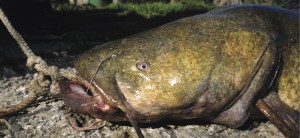Donate to fund disabled veteran hunt and fish licenses
To show appreciation for the service and sacrifice of our disabled veterans, the Kansas Legislature annually appropriates a limited amount of funding to provide them free hunting and fishing licenses. Any Kansas resident who is a military veteran with at least 30 percent disability qualifies, and application for the licenses must be made each year. However, if the number of qualified applicants exceeds the amount appropriated, the Kansas Department of Wildlife, Parks and Tourism (KDWPT) must cease issuing the licenses or rely on a pool of donations to fund them. Anyone purchasing a hunting or fishing license online is given the option through a check box to make a donation to fund these licenses.
The appropriation for Fiscal Year 2015 ran out in May and donations have been exhausted, so KDWPT has applications for licenses that cannot be issued. The appropriation is expected to be in the FY2016 budget, but those funds won’t be available until July 1 and may be insufficient to fund all the applications that could arrive during the coming fiscal year.
It’s difficult to predict demand for these licenses and permits and when funding runs out, the only recourse is to use donations. Help ensure our disabled veterans enjoy the Kansas outdoors by donating when you purchase licenses online. Call 620-672-5911 for more information.

